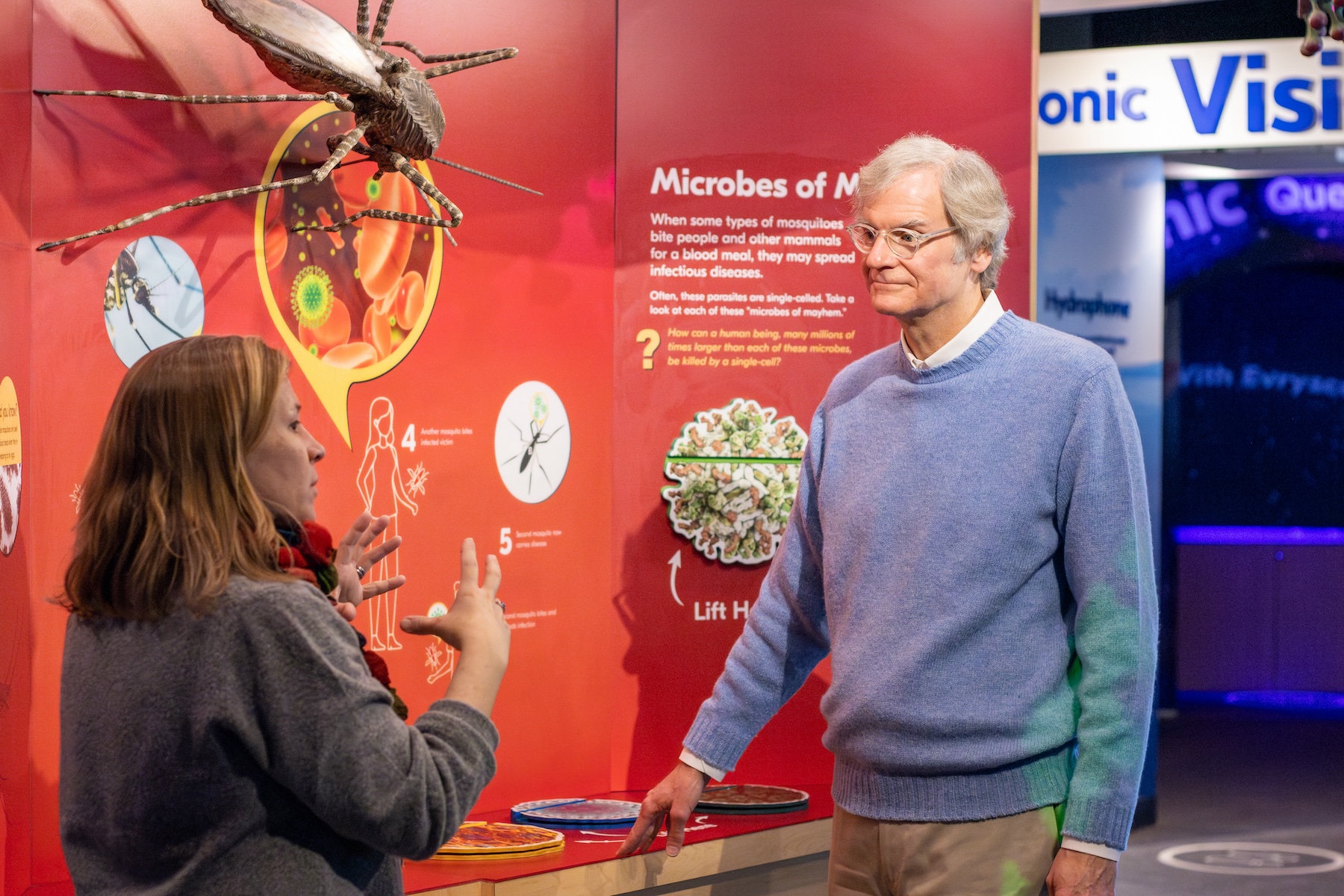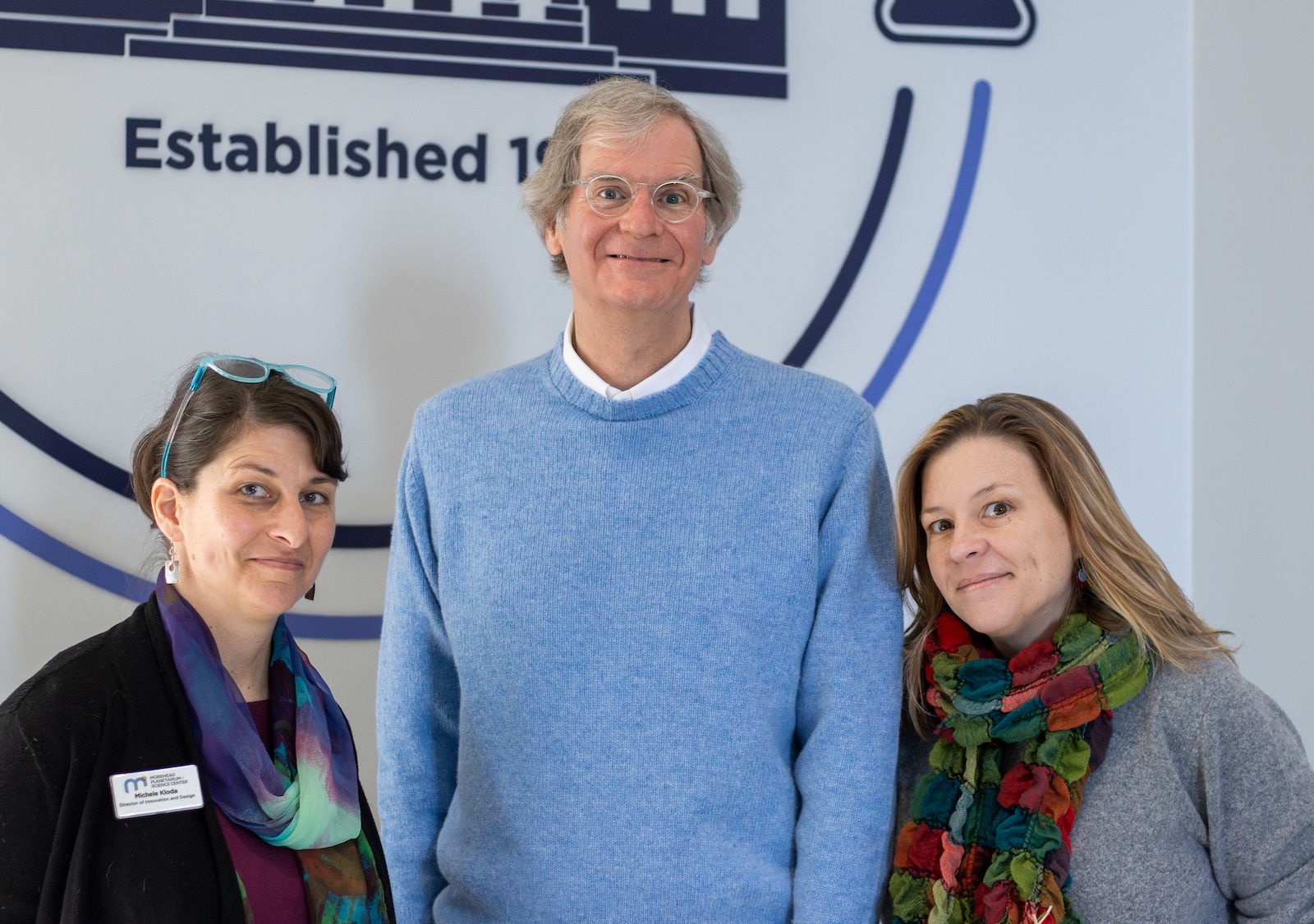Gift offers opportunity for ‘broader impacts’ toward future visitor experience
By CHRISTOPHER KATELLA
CHAPEL HILL, NC (Feb. 8, 2024) — When Frank Proctor ’85 was a young boy growing up in Sanford, NC, a family or school trip to Morehead Planetarium in Chapel Hill was always an exciting prospect. “I remember being mesmerized by the giant sundial and the Zeiss projector and the shows and the stars,” recalled Proctor. “It really inspired a sense of wonder in me.”
Proctor’s continued interest in science education for all ages motivated him to establish the Broader Impacts Fund at Morehead, providing an opportunity to reimagine the Breakthrough Hub and Polaris Gallery exhibit spaces and inspire future generations of researchers and scientists.

Created as part of Morehead’s renovation project from 2019-20, the 3,000 sq ft. Breakthrough Hub and adjacent Polaris Gallery were a significant addition to the on-site visitor experience. As a research-focused “visitors center” for UNC-Chapel Hill, interactive exhibits within these galleries describe real-world research activities in fields such as astronomy, public health, plant ecology, and more.
“Frank’s generous gift affords us the opportunity to more fully realize the intention of the Breakthrough Hub: to provide engaging, memorable experiences around current science research,” said Michele Kloda, director of innovation and design at Morehead. “Morehead has been described as the gateway to science at the University of North Carolina at Chapel Hill. This funding allows us to tell compelling stories of this research and make science more approachable and relevant to guests of all ages.”
“By supporting exhibit development, Frank is helping Morehead fulfill a key part of our mission — sharing the important research done at UNC-Chapel Hill with all of North Carolina and beyond,” said Kelly Marks, exhibits manager at Morehead.
With more examples of groundbreaking research at the university each year, Kloda and Marks focus on making the Breakthrough Hub a living, breathing space where different research topics are highlighted.
According to Kloda, most larger science and cultural institutions plan for a 10-15-year exhibit lifespan, but Morehead looks to replace that static experience with something fresher for visitors. “Because of Frank’s support, we have the opportunity and funding to focus on topics that our visitors are letting us know they want to know more about,” said Marks.

Alongside other expected updates, changes to the Breakthrough Hub made possible by the Broader Impacts Fund include a collaboration with Dept. of Physics and Astronomy Dr. Andrew Mann and The Mann Group as well as an effort with the Dept. of Applied Physical Sciences’ Dr. Rich Superfine and Dr. Glenn Walters to create a new cilia model for an upcoming exhibit.
In conversations with Kloda and Marks, Proctor was struck by the duo’s ‘tremendous creativity’ in translating research into an understandable form. “Through a lot of brainstorming with a UNC scholar, they’re able to transform that into an idea that the public and school students can grasp and then make it into something physical,” he said. “I think that just takes a huge amount of imagination.”
While Kloda admits that presenting current science in a science center and museum space can be difficult for many reasons, it’s also an exciting chance to do something unique and novel. “We have an opportunity to really understand how you deliver engaging content to the public that can also take people deep into current science so they feel like they’re on the cutting edge of UNC-Chapel Hill research,” she said.
Proctor has confidence in Kloda and Marks’ collective vision for the future of the Hub. “They’re always looking for ways to squeeze more engagement and learning out of each exhibit,” he said. “An exhibit has to be fun and engaging, but they make sure each interaction is an opportunity for learning.”
Through Broader Impacts collaborations, Kloda hopes to demonstrate to researchers and undergraduate and graduate students how effective science communications is an essential part of the research cycle and can inspire others to get involved in research. “They’re starting to understand how their science can be communicated to the public. Understanding, ‘Oh, if I had known this as a kid, how exciting this would have been for me to know that this was possible.'”
For Proctor, sparking curiosity in the next generation of researchers, thinkers, and scientists was one of many motivations for supporting Morehead, and he expresses hope that children will be more encouraged to learn about science. “I think this is a tremendous resource for the educators of North Carolina and a wonderful learning opportunity for the tens of thousands of schoolchildren who visit Morehead every year,” said Proctor.
“Being the 75th anniversary, Morehead will get more visitors this year than any year in its history, so having this robust exhibition program that people will be exposed to when they flow through the building is fantastic.”
